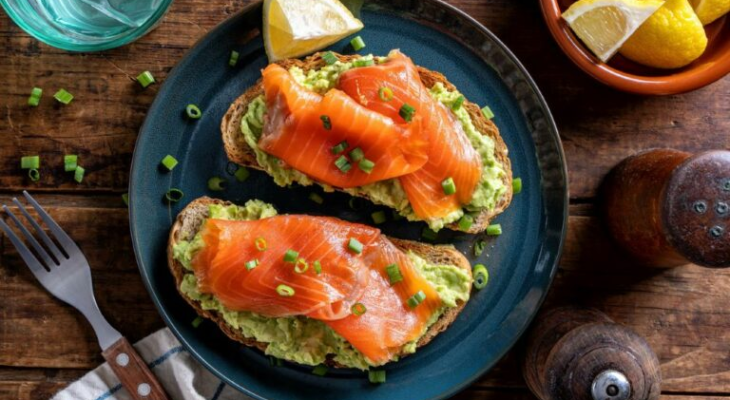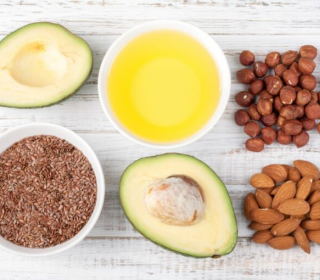Managing Hunger: 7 Strategies to Keep Hangry Feelings in Check

Feeling hungry all the time? Healthista spoke with experts to find out how to curb your hunger.
Have you ever had a busy day where you skipped breakfast or lunch because of your hectic schedule? You might be on a diet or consciously reducing your food intake.
What happens to your mood when you eat? Is hunger making you angry or hangry?
Rob Hobson is the Head of Nutrition for Healthspan, a supplement brand.
When you feel hungry, your mood can be affected. You may become angry, irritable, and snappy.
You’re more likely to reach for fatty, sweet, stodgy foods to satisfy your hunger (eg. crisps, chocolates or chips). This can lead to unhealthy eating habits.
Hunger and hormones
You will also be irritable and upset if your hunger gets out of hand.
Rob says that when you are in a state of extreme hunger, your hormones will change.
There’s a biological reason for it. When you are hungry or haven’t had food for a while, the levels of blood sugar (glucose), decrease. Your body releases adrenaline and cortisol when your blood sugar drops too low.
These help bring your blood sugar level back up. However, an increase in stress hormones puts you in a ‘fight or flee’ mode, which can make you feel more tense, anxious and angry.
Stress hormones are released when blood sugar levels fall too low
Low blood sugar can also cause a chemical in the brain called neuropeptide-Y to be released, which can increase aggression and make you crave sugary carbohydrates for instant energy.
It’s okay to be a little peckish, but you shouldn’t get so hungry it makes you hungry. Here are some ways to avoid ‘hanger.’

#1 Eat regularly
Rob Hobson, a nutritionist, says that if you are prone to feeling hungry, you should eat regularly. He also recommends choosing foods high in nutrients to keep you satisfied for longer.
You don’t need to eat so much. Foods that give you energy for a long time are the best. Foods high in nutrients are best – for example, vegetables, fruit, nuts, grains, seeds, fish, and lean meat.
If you combine healthy fats, protein and fibre you will feel fuller for longer. To get the right balance of nutrients, it’s important to eat different foods.
Plan ahead
You may want to prepare ahead if you are expecting a busy week or few days. Make a list and buy all the items you need well in advance.
To make a quick breakfast packed with nutrients, soak oats and berries in almond milk the night before.
Take a piece of the leftovers from last night (for example, a slice or vegetable frittata), and have it for lunch. Be sure to have all the ingredients needed for a healthy, quick meal.

Every meal should contain protein
Protein helps you feel fuller for longer. It increases metabolism and regulates blood sugar (by slowing the release of glucose from carbohydrates into the bloodstream).
a higher protein diet improves appetite control
Protein increases the levels of leptin and ghrelin, the hunger hormone. A recent study published in the American Journal of Clinical Nutrition (2015) showed that a high-protein diet improved appetite control.
Chickpeas are a good source of protein, as well as nuts, seeds and quinoa. Other sources include tofu, lean poultry, fish, yoghurt or cheese, and eggs.
Healthy fats can curb hunger.
Rob says that eating healthy fats increases metabolism, burns fat and reduces hunger.
You also need healthy fats to produce hormones. You can keep yourself full by combining protein with fibre and healthy fats.
Healthy fats are found in oily fish, such as salmon, mackerel and tuna, as well as chia, flaxseeds, nuts, seeds and olive oil.

#5 Carry portable healthy snacks
Rick Hay, Nutritionist says: “When you are rushing around it is tempting to grab any sugary snack that you can get your hands on.”
“But this will lead to a crash in sugar levels later on, which makes you more hungry and irritable.”
Healthy snacks to balance blood sugar levels
- A pear or apple with a few nuts or seeds.
- Almond or Peanut Butter on an Oatcake
- Small cans of tuna are a great way to get a quick fix of protein.
- The berries are a handful with nuts.
- Healthspan HiLo protein bar White chocolate and raspberry (20g proteins)
#6 Keep stress levels down
You’re likely to feel stressed if you are a busy person. This is not the best combination to keep hanger in check.
Stress triggers a rise in adrenaline and cortisol, which cause a drop in sugar levels. This can lead to mood swings and a ravenous appetite. You’re more likely to gain weight if you are stressed out.
Dr Sarah Brewer is the Medical Director of Healthspan. She says that during chronic stress, cortisol inhibits an enzyme called hormone-sensitive lipase. This prevents fat breakdown, which makes it harder to lose weight.
Stress can lead to comfort food in an attempt to replenish energy.
This may be a way to conserve energy during difficult times. Stress can lead to comfort food in an attempt to replenish energy reserves.
Dr Brewer suggests the following strategies to reduce stress:
- Stress-busting nutrients:
Magnesium, also called ‘nature’s tranquilizer,’ vitamin C, and B vitamins are all used up faster when you’re under stress.
Try: Magnesium with Vitamin B Complex.
- Speak to someone who can help.
- Use a natural remedy like passion flower or valerian for your body to better manage stress.
Try A.Vogel Passiflora Complex Tabs, which contain passion flower, valerian, lemon balm and magnesium to calm you down.
- Listen to relaxing music and practice yoga, meditation or mindfulness. Laugh regularly with your friends.
#7 Get enough Sleep
Rob says that stress hormones usually drop when you sleep.
If you have trouble sleeping, your cortisol level will remain high, and sugar levels will drop. You’ll wake up tired, irritable, and cranky.
Sleep deprivation lowers leptin levels, which suppresses appetite, and increases ghrelin levels, the “hunger” hormone. You’re therefore more likely to overeat and feel hungry.
One study (King’s College London 2016) found that people who slept less ate (on average, 385 extra calories) the following day.










